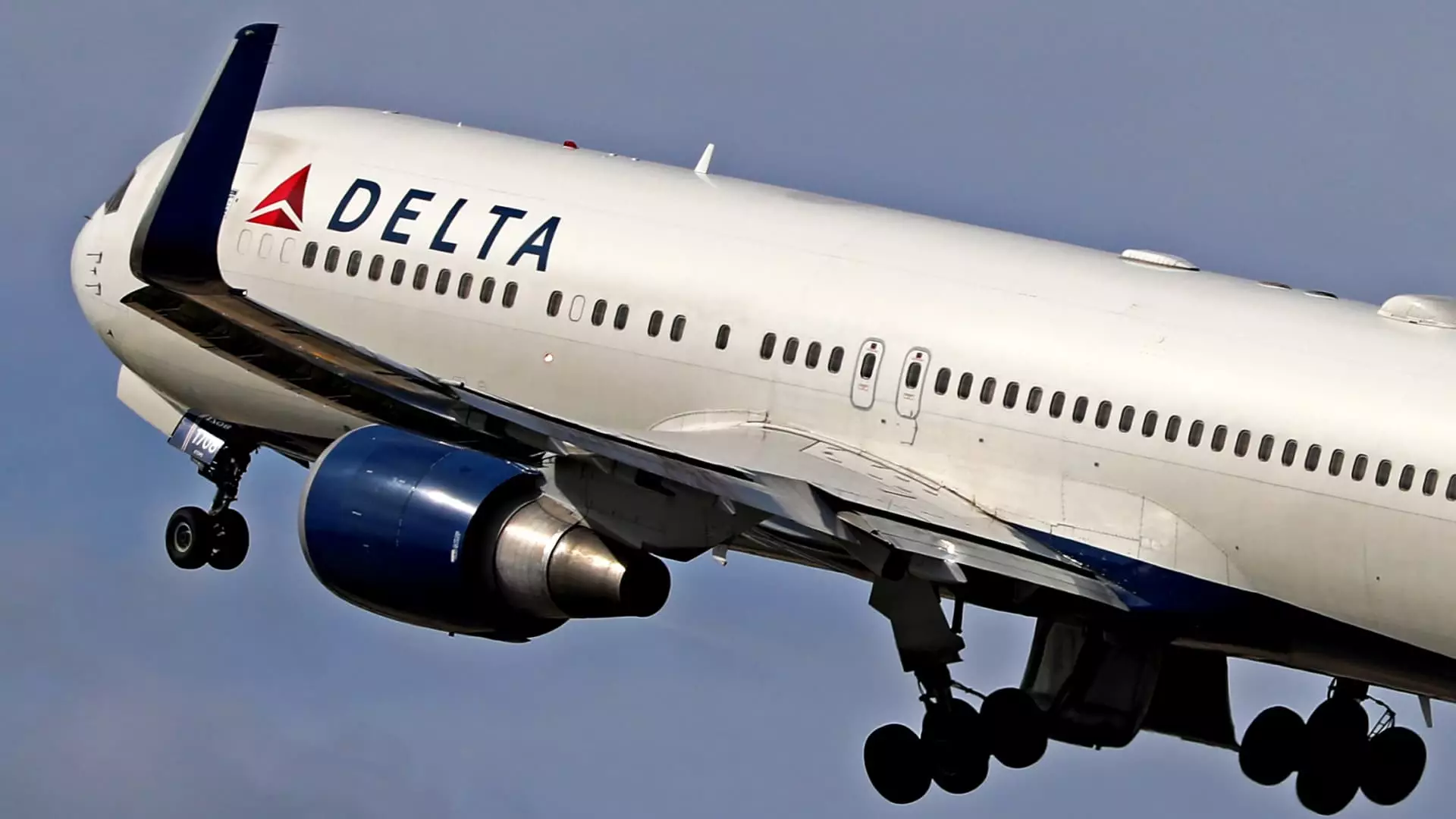The ongoing turmoil within the airline sector has reached a point where mere statistical fluctuations can no longer be dismissed as anomalies. On Tuesday, airline stocks took another dive, driven by deep-seated fears regarding declining travel demand. Wall Street’s concerns run deeper than just seasonal slumps; they’re steeped in a broader economic malaise that is affecting consumer sentiment. The fall of Delta Air Lines’ stock, by over 2%, serves as an alarming bellwether for the sector. After Jefferies reduced Delta’s rating from buy to hold, the message was clear: the golden days of the airline business, marked by robust profitability, seem to be fading.
The Weight of Tariffs and Consumer Confidence
Underlying this grim outlook are two powerful intruders: impending tariffs and sagging consumer confidence. Jefferies’ drastic price target cut for Delta, from $85 to $46, underscores the precarious position airlines find themselves in. Notably, the ever-increasing scrutiny on domestic and international travel further constrains their recovery potential. It is worth noting that Delta has tried to pivot towards more affluent travelers, banking on its premium offerings and partnerships, like that with American Express. But is this approach fatally flawed? The average consumer—the pulse of the industry—remains hesitant.
Declining Revenue and Travel Trends
An analysis of the recent numbers reveals a disturbing trend: while overall household spending grew by 1.5% year-over-year, spending on airline travel took a 7.2% hit. This stark contrast screams that consumers are tightening their belts, choosing to forgo vacations in favor of financial prudence. The Bank of America Institute hinted that the drop in travel card spending could be indicative of a broader psychological shift among potential travelers. Consumers may be hesitant to commit to travel plans due to factors beyond mere finance, such as bad weather and late holiday schedules. However, these excuses do little to fill the coffers of beleaguered airlines.
Sector-Wide Repercussions
The NYSE Arca Airline Index plunged 18% in the first quarter, outpacing declines in the broader S&P 500, signaling an industry-wide malaise that can’t be overlooked. Augmented by wavering consumer confidence, these developments indicate that this is not merely a pass-through phase but rather the beginning of a longer-term evolution in the airline industry landscape. With Jefferies downgrading American Airlines and Southwest Airlines in tandem, the ripple effect of negative sentiment is becoming alarmingly evident. The question remains: will any airline be able to rise above the ashes in this volatile climate?
Resiliency Amid Challenges
Although United Airlines continues to hold Jefferies’ sole buy rating, and perhaps hints at some resilience, even it faces difficult questions ahead, especially with new lower price targets looming. Airlines are at a juncture where traditional models cannot hold anymore; they demand innovation to adapt to consumers whose priorities may have shifted. It’s time for these companies to rethink their strategies, focusing less on chasing profit through excessive pricing and more on value-sensitive travelers. Ultimately, the sector must realize that recovery hinges on understanding its most volatile asset—public confidence. Without it, the path ahead appears unforgiving.

